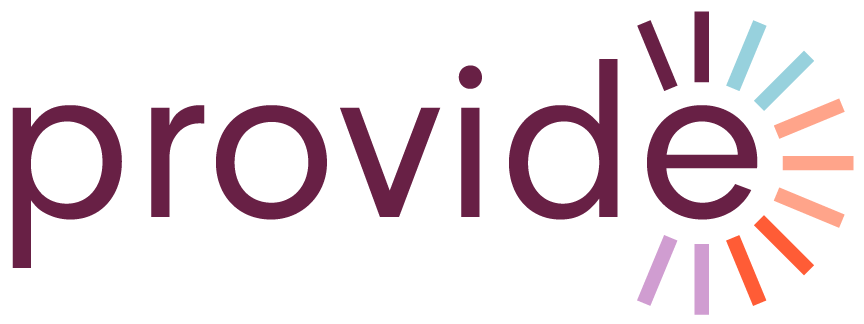There are nearly 300,000 Primary Care Providers practicing in the United States.
Physicians, nurse practitioners, nurses and physician assistants are highly skilled and see patients of all walks of life, including potentially pregnant women. With nearly half of pregnancies in the U.S. being unplanned, Primary Care Providers (PCPs) should have the tools to ensure patients can make the best decision for themselves regarding their pregnancy.
The comfort level a PCP has in discussing pregnancy options can be a key factor in whether a woman has access to abortion care. PCPs should be prepared to fulfill a patient’s request for abortion or to counsel a client facing ambivalence around a pregnancy. Our Referrals for Unintended Pregnancy Training gives PCPs the most up-to-date resources on abortion care, including best practices for providing unbiased referrals. PCPs can feel confident and secure in the referrals they’re making, as only regulated abortion care providers are included in our resource materials.
Beyond the basics of providing high-quality pregnancy options counseling, our training gives PCPs the best language and practices to care for patients considering abortion, with concrete tools to better serve a patient facing decisions regarding a pregnancy with consideration for their specific needs. Additionally, our training offers insight into managing the complexity of these conversations, including the conflict that providers face when personal values conflict with professional ethics.
In 2018, Provide staff co-authored an article that was published in the Maternal and Child Health Journal. Evaluation of a Training for Health and Social Service Providers on Abortion Referral-Making examines the overall effectiveness of Provide’s Referral Training Program in addition to the impact of the training on the provider’s knowledge of the safety of abortion procedures, ability to conduct abortion referrals, and intention to provide unbiased, all-options pregnancy counseling.
of all U.S. pregnancies are unplanned
75% of U.S. Abortion Patients are poor or low income.
58% of women receiving abortions report that they would have liked to have obtained care earlier.
Together, with your expertise in the care and well-being of your patients, we can help you:
- Improve patient experience and satisfaction
- Retain a priority patient population with greater ability to meet patient needs
- Enhance access to care and reduce health disparities
- Maximize patient visits with clear, comprehensive tools for options counseling and abortion referrals
- Design policies and procedures through our Technical Assistance Program to institutionalize client support and referral-making for reproductive healthcare

58% of women receiving abortions report they would have liked to have obtained care earlier.
Together, with your expertise in the care and well-being of your patients, we can help you:
- Improve patient experience and satisfaction
- Retain a priority patient population with greater ability to meet patient needs
- Enhance access to care and reduce health disparities
- Maximize patient visits with clear, comprehensive tools for options counseling and abortion referrals
- Design policies and procedures through our Technical Assistant Program to institutionalize client support and referral-making for reproductive healthcare

The Provide Training Prepares Professionals for Successful Outcomes
were “very satisfied” with the training
agreed by the end of the training that “I have the skills and information I need to effectively refer a client with an unintended pregnancy for pregnancy termination if she requests it.”
agreed by the end of the training that “I have the skills and information I need to effectively counsel a client with an unintended pregnancy on all her options.”
“We are a comprehensive medical clinic and I am the director of the department. We often get referrals for women who have unintended pregnancy. The training is helpful for our own team as well as for members of other departments who might call us. I appreciated the information on abortion, and the education on ways to make the language we use more sensitive (so for example not say, “give it up for adoption”) and I have used that immediately when I speak with women. Using the resources provided, we were able to create a standard folder of information we offer to people who have an unintended pregnancy. The biggest way the training affected our practice is just awareness and language that have changed, using the more sensitive language and recognizing that they might have needs that they didn’t necessarily come out with, so I might have to help explore those with them.”
“Abortion is part of reproductive health services, filling in when other contraceptive measures fail or are not used appropriately, and it is especially essential to have a full understanding of abortion and other options when working with underserved women. who may not have a complete understanding of their options and may need extra assistance navigating the system.”
“The training helped me understand that I needed to slow down, listen, and be more empathetic and understanding. We have about 15 minutes with each client; we are rushed. I think more than anything else, the training helped me understand how important it is to give her time to let her process as much as she can within the limited time we have in clinic, and to give her all the options she has in an unbiased manner.”
The Provide Training Prepares Professionals for Successful Outcomes
were “very satisfied” with the training
agreed by the end of the training that “I have the skills and information I need to effectively refer a client with an unintended pregnancy for pregnancy termination if she requests it.”
agreed by the end of the training that “I have the skills and information I need to effectively counsel a client with an unintended pregnancy on all her options.”
Would your organization benefit from a Provide training?
Take the quiz and find out!
[streamquiz id=”1″]





